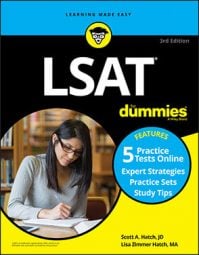The questions in this article refer to the following passage.
“Power” is a generic term that must be distinguished from the more specific term “authority.” When party A gets party B to do what party B would not otherwise have done, party A has exercised power. Power takes many forms and appears variously in the histories of Alexander the Great and his time.
Alexander enjoyed military power and delegated a portion of it to his general, Antipater. Antipater in turn used the coercive power afforded him by his army in Greece to install friendly governments and forestall concerted action against Macedonia.
The politicians and public speakers in the Greek states demonstrated powers of persuasion that, at different times, affected the course of events differently. Only those with some degree of power become actors in political histories. More interesting is the particular manifestation of power that we call authority.
Authority is a kind of power, but not all power is authoritative. Authority is a “discursive function.” Authority describes the ability to command effectively, for even when we speak of someone “acting” authoritatively, we actually mean “causing others to act by virtue of one’s authoritative speech.”
As such, authority implies an asymmetry in the relationship between speaker and listener. Because authority demands obedience, it is associated with coercive power, and because it operates in discourse, it is associated with persuasive power.
Yet these associations are uneasy. The command, “Don’t move or I’ll shoot” is discursive and demands obedience, but while it shows that the speaker is in a position of power, it does not suggest a position of authority. Likewise, a well-argued case may effect its desired result, but argument presupposes a certain equality between speaker and listener.
Authoritative speech relies for its effect on the identity of the speaker, her or his relationship with the audience, and the audience’s perception of the speaker. Coercion and persuasion may support this relationship, as the listeners assume either that dire consequences will result from disobedience or that there must be good reasons for obedience. But to see authority in action, both coercion and persuasion must remain in the background, occulted.
If the listener demands a reason for a command or asks about the consequences of disobedience, the speaker’s authority falters. At this point authority may give way to persuasion (if the speaker argues in favor of the command) or naked force (if the speaker threatens), or it may be reasserted by invoking the privileged, authoritative position of the speaker: “Because I said so!”
Alexander himself enjoyed many kinds of authority at different times: as acclaimed leader, first among equals, of the Macedonians, as presider over the Treaty of Common Peace in Greece, as Great King in Persia, and as an earthly divinity at first to the Egyptians (who were used to such things) and later to many Greeks.
Other Macedonians also held authority, at various times, either by association with Alexander or according to their own abilities and positions.
-
Which one of the following most accurately states the central idea of this passage?
-
(A)Power and authority are the same thing but are spoken of differently depending on whether the person exercising power is a political leader.
-
(B)Power is a kind of authority that comes from persuasive speech and the threat of coercive force.
-
(C)Authority is a kind of power that does not explicitly depend for its effect on persuasion or coercion.
-
(D)Alexander was unique among ancient kings in exercising power and authority, but his general, Antipater, was also powerful.
-
(E)Alexander exercised power among the Greeks but relied on authority to govern Macedonians, Persians, and Egyptians.
-
-
The primary function of the second paragraph of the passage is to
-
(A)discuss the use of authority by Alexander the Great
-
(B)explore aspects of the concept of authority and its uneasy association with coercive and discursive power
-
(C)imply that without coercive power, there is no authority
-
(D)criticize scholars who have suggested different definitions of authority
-
(E)suggest that a speaker’s authority falters if listeners question it
-
-
What does the author mean by the word “occulted” in Line XX?
-
(A)expressed
-
(B)understated
-
(C)hidden
-
(D)magical
-
(E)accosted
-
-
According to the passage, what is the difference between power and authority?
-
(A)Authority is a generic term for creating an effect through persuasion, while power involves coercive force.
-
(B)Power is a generic term for the ability to make someone do something; authority is a particular form of power, the ability to command without explicit persuasion or coercion.
-
(C)Authority is exercised by virtue of political office, while power requires military command.
-
(D)Power exists in the eyes of the governed, while authority resides in the one employing it.
-
(E)Power is a generic term for the ability to make someone do something; authority is a particular form of power, the ability to command by skillfully applying persuasion and coercion as necessary.
-
-
C. Authority is a kind of power that does not explicitly depend for its effect on persuasion or coercion.
-
B. explore aspects of the concept of authority and its uneasy association with coercive and discursive power
-
C. hidden
-
B. Power is a generic term for the ability to make someone do something; authority is a particular form of power, the ability to command without explicit persuasion or coercion.

